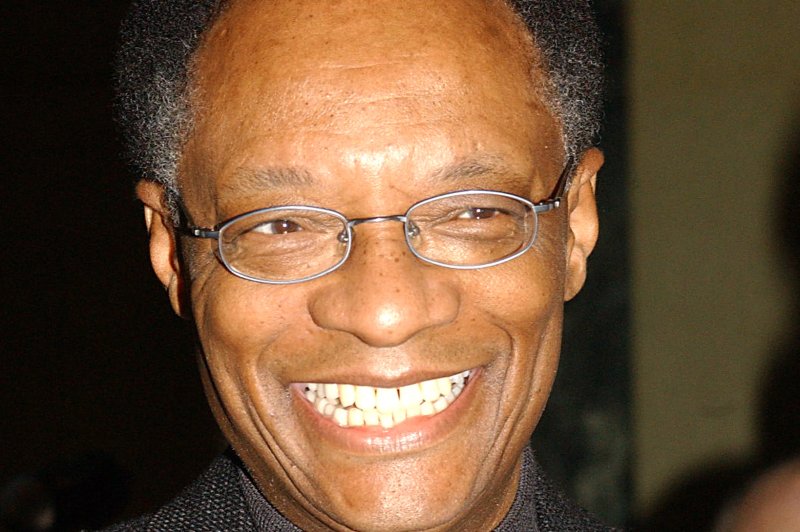Kristopher Fraser
September 7, 2022

Courtesy of Double Take
New York Fashion Week’s runways have become progressively more diverse over the past several seasons. Still, one group is only just starting to see more representation at Fashion Week: the disabled community.
Gabriella Santaniello is the founder and CEO of A Line Partners, a retail research firm investors turn to for help investing in brands and the fashion industry. In addition to her passion for retail, she is also passionate about disability rights and representation.
Why Mega-Brands Like Tommy Hilfiger and Puma Are Back at New York Fashion Week
She said in terms of trying to get fashion brands to listen to the issues the disabled community faces and bringing in more disabled representation, brands need to see this as a revenue driver.
“It’s unfortunate and horrible to say to get these brands to listen about disabled accommodation and representation we need, they need to see it as adding to their revenue,” Santaniello said. “It shouldn’t be that way, but the potential for brands to succeed in the disabled market is huge. I don’t understand why they can’t just get on board, and it drives me berserk.”
Open Style Lab, a nonprofit organization committed to making style accessible for everyone regardless of physical abilities, is helping fight for this representation. This season as a prelude to New York Fashion Week, the organization is debuting a first-of-its-kind runway show called Double Take, which aims to increase disability visibility and champion adaptive fashion.

Annika Hutsler poses during A Fashion Revolution by Runway of Dreams at The Majestic Downtown on March 8, 2022, in Los Angeles, California.
Jerod Harris/Getty for Runway of Dreams Foundation
Double Take was created for the broader disability community by the spinal muscular atrophy (SMA) community, and their runway show will see all models with SMA grace the runways.
“Disability visibility is one of the areas that needs to be more integrated into mainstream culture,” the organization’s CEO Grace Jun said. “We have to keep trying to put more people of different backgrounds on the runway because that’s a great place for it to start.”
This year, Open Style Lab’s fellows who are designing for Double Take were chosen from around the world, and 80 percent of them are disabled themselves. In a statement e-mailed to The Daily Beast, Andrea Saleh, one of this year’s fellows, said, “Thanks to the support of Genentech, Double Take gave me the opportunity to explore forward-thinking fashion designs that are inclusive of people of all abilities. I collaborated with several people living with spinal muscular atrophy (SMA) to co-create accessible garments that fit both their personalities and their individual needs, including Shane Burcaw, who has SMA and uses a power wheelchair.”

Matthew and Mike Fernandez onstage during A Fashion Revolution by Runway of Dreams at The Majestic Downtown on March 8, 2022, in Los Angeles, California.
Jerod Harris/Getty for Runway of Dreams Foundation
Mindy Scheier, the founder of Runway of Dreams Foundation, an organization empowering people with disabilities through fashion, was inspired to start her organization because of her son who has muscular dystrophy. Now, she also focuses on helping champion the next generation of designers.
“One thing that I always try to tell people is that disability could happen to any of us at any stage of our lives,” Scheier said. “The industry is no question starting to get better about disabled representation, and brands are slowly starting to treat adaptive fashion for disabled people as a category no different than plus-size or petite. Runway of Dreams now uses the money we raise through our shows for scholarships for people focused on careers in adaptive fashion. We also partner with over 20 college clubs and universities to engage them in the adaptive fashion movement. Adaptive fashion is starting to become an incredibly important category in the industry.”
Read more at The Daily Beast.
Activism and '90s glamour on display at New York Fashion Week
AFP -
Glamour on the one hand, activism on the other: designers Tory Burch and Gabriela Hearst showcased two different approaches to New York Fashion Week on Tuesday.

American designer Burch offered New York a vintage-inspired collection that veered away from her well-known prints and bright colors
Glamour on the one hand, activism on the other: designers Tory Burch and Gabriela Hearst showcased two different approaches to New York Fashion Week on Tuesday.

American designer Burch offered New York a vintage-inspired collection that veered away from her well-known prints and bright colors
© ANGELA WEISS
- 'Richness and minimalism' -
American designer Burch offered New York a vintage-inspired collection that veered away from her well-known prints and bright colors.
"The collections have been for me much more personal now that I'm not running the business," she told AFP after the show.
Since 2019, Burch has entrusted her husband, Pierre-Yves Roussel, with managing the company, while moving into the roles of chief creative officer and executive chair.
For the Spring/Summer 2023 edit, Burch said she thought back to when she moved to New York in the 1990s and wanted to highlight "the concept of richness and minimalism" at the same time.
With sheer cotton tops, lace bras and silver shoes, Burch evoked the sleek sophistication and eroticism in vogue in the early '90s.
"I do think it's a bit sexier than what we have done in the past," she said. "And I think that women are feeling that right now. I see that that's how women want to dress, but I also love a certain elegance to it."
She said she also experimented with layering, using a jersey bandeau skirt as a recurring motif, sometimes worn over pants.
"I wanted to challenge us to push it a little further and also to have a more focused point of view," she explained.
- Women's empowerment -
Uruguayan designer Gabriela Hearst's show was imbued with ambiance. In an enormous warehouse with opaque windows, her models paraded down a runway lined with a gospel choir.

Since 2019, fashion designer Tory Burch has stepped away from managing her company to focus on the creative side© ANGELA WEISS
Gold dominated, shimmering across a cape, on a breastplate and popping against white and black accompaniments.
Long yellow and orange ponchos handsewn in Uruguay and red pantsuits also brought to mind the colors of fire.
Some pieces appeared to have been directly molded onto the models with the collection notes describing how leather had been soaked in water and then draped over a form to create unique pieces.

Sheer cotton tops, lace bras and silver shoes evoked the style in vogue in the early 90s© ANGELA WEISS
The theme of women's empowerment was also woven into the show.
Hearst, who is also the creative director at Chloe, said her 2023 Ready-to-Wear Collection was inspired by the ancient Greek poet Sappho and how she had shed light on the hardships women had to endure.
"This Joy," a gospel song written by Grammy winner Shirley Caesar, was performed by the Resistance Revival Chorus, which was billed as a collective of women and non-binary singers that addresses how "historically marginalized women have been in the music industry."
The catwalk cast included women's rights activist Cecile Richards, Mexican Chilean climate activist Xiye Ba and anti-toxic shock syndrome campaigner Lauren Wasser.
Hearst also said she had aimed to offset the climate footprint of her show by working with Swiss company Climeworks, which uses technology to capture carbon dioxide directly from the air.
tu-arb/led/lb/ssy
- 'Richness and minimalism' -
American designer Burch offered New York a vintage-inspired collection that veered away from her well-known prints and bright colors.
"The collections have been for me much more personal now that I'm not running the business," she told AFP after the show.
Since 2019, Burch has entrusted her husband, Pierre-Yves Roussel, with managing the company, while moving into the roles of chief creative officer and executive chair.
For the Spring/Summer 2023 edit, Burch said she thought back to when she moved to New York in the 1990s and wanted to highlight "the concept of richness and minimalism" at the same time.
With sheer cotton tops, lace bras and silver shoes, Burch evoked the sleek sophistication and eroticism in vogue in the early '90s.
"I do think it's a bit sexier than what we have done in the past," she said. "And I think that women are feeling that right now. I see that that's how women want to dress, but I also love a certain elegance to it."
She said she also experimented with layering, using a jersey bandeau skirt as a recurring motif, sometimes worn over pants.
"I wanted to challenge us to push it a little further and also to have a more focused point of view," she explained.
- Women's empowerment -
Uruguayan designer Gabriela Hearst's show was imbued with ambiance. In an enormous warehouse with opaque windows, her models paraded down a runway lined with a gospel choir.

Since 2019, fashion designer Tory Burch has stepped away from managing her company to focus on the creative side© ANGELA WEISS
Gold dominated, shimmering across a cape, on a breastplate and popping against white and black accompaniments.
Long yellow and orange ponchos handsewn in Uruguay and red pantsuits also brought to mind the colors of fire.
Some pieces appeared to have been directly molded onto the models with the collection notes describing how leather had been soaked in water and then draped over a form to create unique pieces.

Sheer cotton tops, lace bras and silver shoes evoked the style in vogue in the early 90s© ANGELA WEISS
The theme of women's empowerment was also woven into the show.
Hearst, who is also the creative director at Chloe, said her 2023 Ready-to-Wear Collection was inspired by the ancient Greek poet Sappho and how she had shed light on the hardships women had to endure.
"This Joy," a gospel song written by Grammy winner Shirley Caesar, was performed by the Resistance Revival Chorus, which was billed as a collective of women and non-binary singers that addresses how "historically marginalized women have been in the music industry."
The catwalk cast included women's rights activist Cecile Richards, Mexican Chilean climate activist Xiye Ba and anti-toxic shock syndrome campaigner Lauren Wasser.
Hearst also said she had aimed to offset the climate footprint of her show by working with Swiss company Climeworks, which uses technology to capture carbon dioxide directly from the air.
tu-arb/led/lb/ssy











